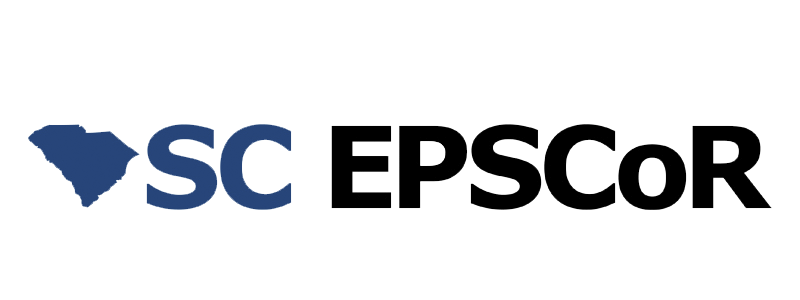The SC EPSCoR Program is now accepting proposals for the Grants for Applications in Industry and Networking (GAIN) Program. The goal of the Grants for Applications in Industry and Networking (GAIN) Program is to encourage faculty researchers at South Carolina’s Comprehensive Research Universities (CRUs) (Clemson University, Medical University of South Carolina, and University of South Carolina Columbia campus to compete effectively for research funding to support the NSF EPSCoR Funded ADAPT in SC (AI-Enabled Devices for the Advancement for Personalized and Transformative Health Care in South Carolina) project.
The SC EPSCoR Program is now accepting proposals for the GAIN Collaborative Research Program (CRP). The goal of the GAIN CRP (Grants for Applications in Industry and Networking Collaborative Research Program) is to encourage faculty researchers at the three South Carolina comprehensive research universities (CRUs), Clemson University, the Medical University of South Carolina, and the University of South Carolina Columbia campus; and predominately undergraduate institutions (PUIs) including HBCUs to build collaborative CRU/PUI academic research teams that will compete effectively for research funding to support the NSF EPSCoR funded ADAPT in SC (AI-Enabled Devices for the Advancement for Personalized and Transformative Health Care in South Carolina) project.
The SC EPSCoR Program is now accepting proposals for the Phase-0 funding opportunity. The Phase-0 Program aims to support support South Carolina small businesses in their proposal development activities to compete effectively for SBIR and STTR Federal funding. Phase-0 proposals can focus on either ADAPT in SC research priorities or Vision 2030: SC Science and Technology Plan.
The SC EPSCoR Program is now accepting proposals for the Scientific Advocate Network (SAN) program. The SAN program aims to broaden participation and increase diversity in the STEM research and education pipeline. The Program targets underrepresented minority (URM), women, and persons with disabilities pursuing STEM degrees. SAN proposals can focus on either ADAPT in SC research priorities or the Vision 2030: SC Science and Technology Plan.
NSF released has recenlty released the new EPSCoR Track-2 Solicitation for the current funding year. FY 2020 RII Track-2 FEC proposals are invited on a single topic: “Harnessing the Data Revolution to solve problems of national importance.” SC EPSCoR State Office will make available awards to provide accessible seed funding for project teams to enhance the development of their submissions.
The goal of the GEAR Program is to encourage faculty researchers at South Carolina colleges and universities to compete effectively for research funding to support the thrust-based research clusters associated with our NSF Track 1-Award, MADE in SC. You do not need to be a member of Track-1 to apply for this grant.
The goal of the GEAR CRP is to encourage faculty researchers to build collaborative CRU/PUI academic research teams that will compete effectively for research funding. GEAR CRP grants will be awarded to build and enhance the network of scientists in the state that will develop thrust-based research clusters associated with our Track 1-Award, MADE in SC. You do not need to be a member of Track-1 to apply for this grant.
The SC EPSCoR Program aims to increase undergraduate research participation in ongoing research during the academic year and/or the summer. The funding for the REU program is intended to support student stipends, materials and supplies, and travel support for undergraduate students.
NSF released has recenlty released the new EPSCoR Track-2 Solicitation for the current funding year. FY 2020 RII Track-2 FEC proposals are invited on a single topic: “Harnessing the Data Revolution to solve problems of national importance.” SC EPSCoR State Office will make available awards to provide accessible seed funding for project teams to enhance the development of their submissions.
The mission of SC EPSCoR Program is to advance excellence in science and engineering research and education to achieve sustainable increases in research, education, training capacity, and competitiveness in South Carolina. The new Stimulus Research Program aims to strengthen the research capacity and research competitiveness of South Carolina institutions through collaboration and inclusion.

